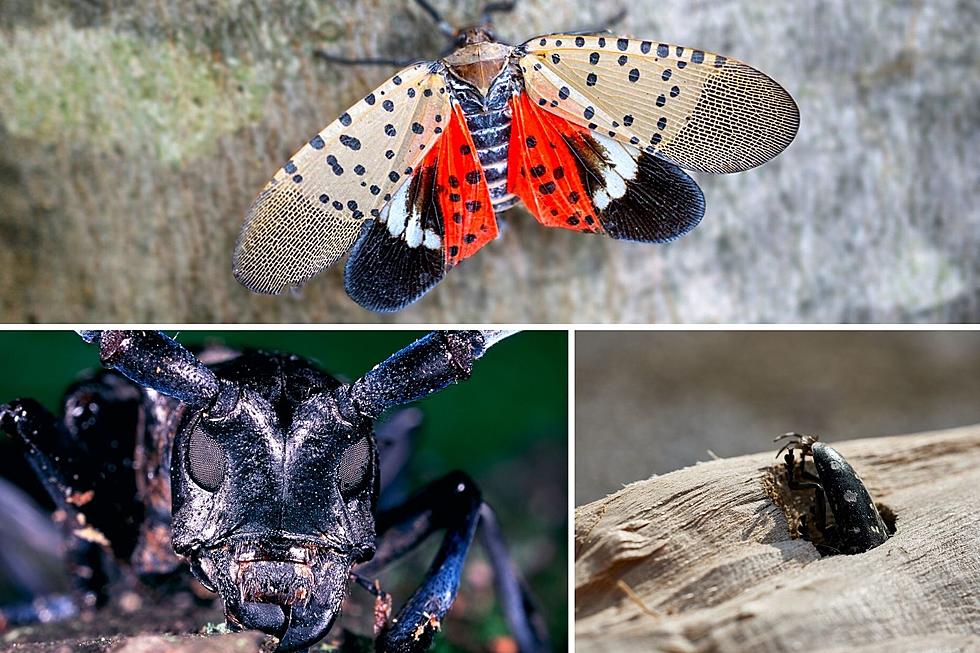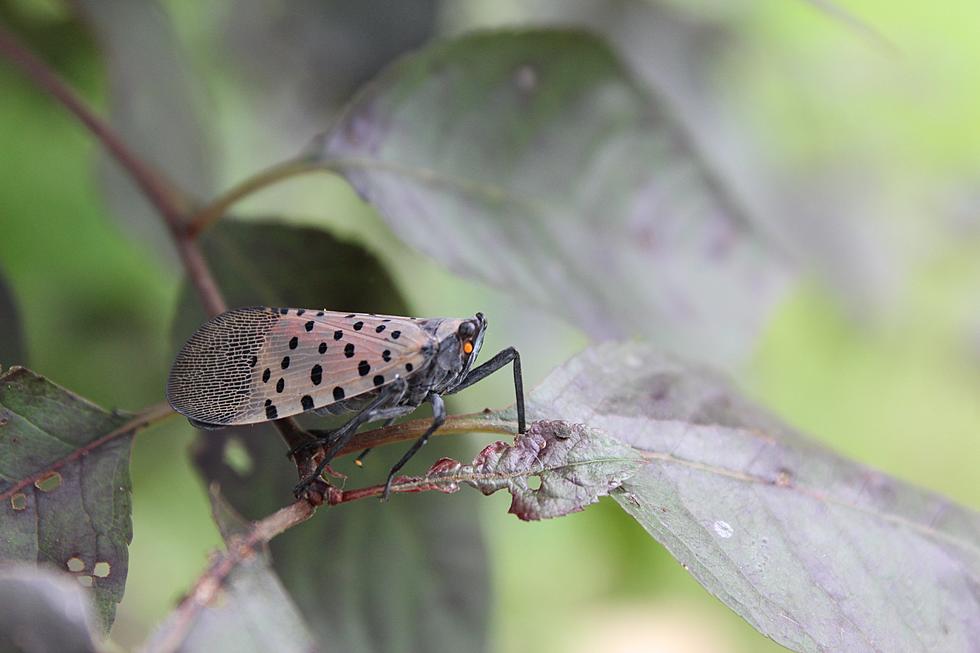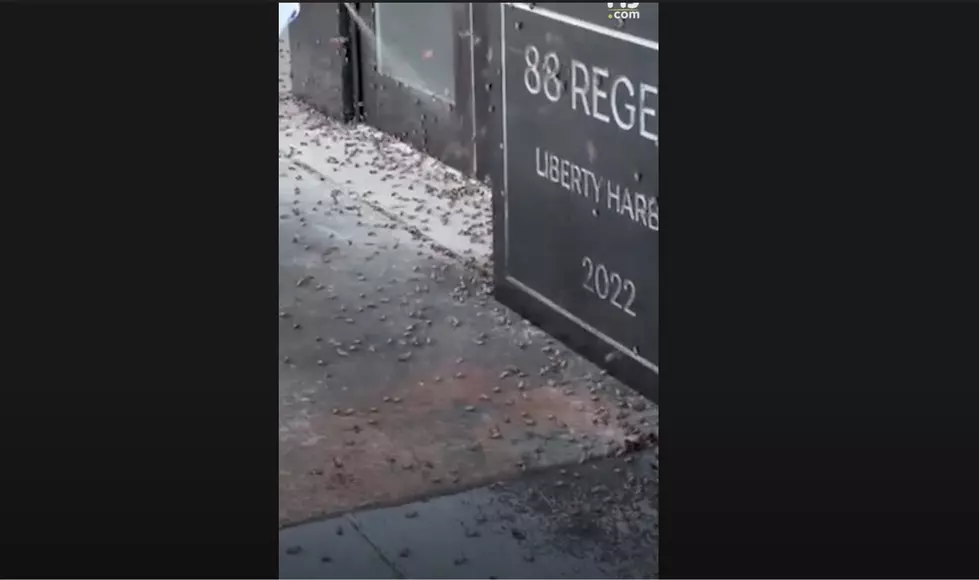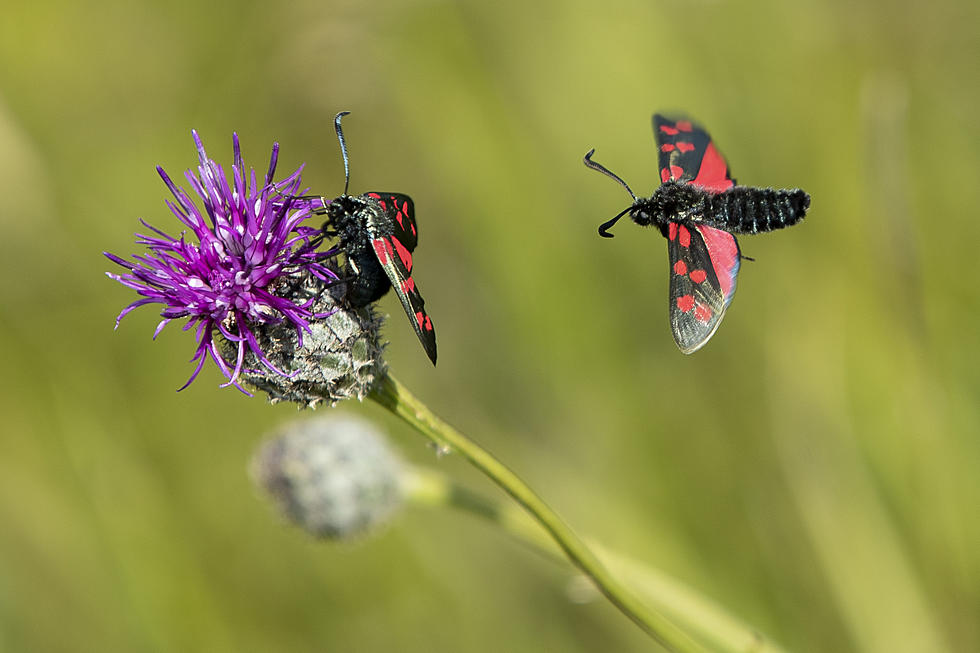
The time is now for NJ to destroy spotted lanternfly egg masses
As the weather warms, officials in Union County are telling their residents to again examine tree trunks, patio furniture, vehicles, and any other stationary surfaces for the muddy-looking egg masses of the spotted lanternfly, and scrape them into oblivion.
There is no other cohesive, statewide strategy to cut down on the invasive bug at this time, according to George Hamilton, extension specialist in pest management at Rutgers University, although Union says it is one of three counties in the Garden State currently participating in a U.S. Department of Agriculture mitigation research project.
Hamilton said at the state level, specific efforts are being undertaken to protect New Jersey's commercially viable wineries from this pest.

"The Department of Agriculture is actively involved in trying to eradicate, locally, populations in the areas of vineyards that we have here in the state," he said.
Elsewhere, elimination remains an individual pursuit. And as far as what people can do to cut down on the 2022 population, Hamilton said there is some time to spare, but the clock is ticking: In New Jersey, eggs usually hatch from mid-May into early June.
Also, he said, the sharpest of eyes may miss impossible-to-reach egg masses in places like the tops of trees, so while he hopes this year's infestation won't be as bad as last year's, it well might be.
Even after the eggs' scheduled hatching, New Jerseyans still have an opportunity to crush this new enemy. By midsummer, Hamilton said the lanternflies will be in the fourth instar stage, large and colorful enough to recognize before reaching full adulthood.
"They're substantially bigger than the earlier juvenile stages. They also turn that red color, which is much more visible than the black-and-white coloration of the earlier ones," he said. "If you can stomp them, stomp them. If you can spray them, if they're on plants and in your yard, go ahead and do that."
But as residents might know by now, stomping isn't easy. Once they sprout wings, spotted lanternflies are known as excellent "hitchhikers," which is how they've spread so quickly and have been observed to reproduce in every New Jersey county except Cape May, according to Hamilton.
Many counties have reached "quarantine" status, a word that people in the Garden State might be tired of hearing after COVID, but which has no true meaning for the general public.
"If you're a commercial operation, there are specific things that you have to do in terms of inspecting your vehicles, inspecting things that you're going to move out of that quarantined county," Hamilton said.
The state Department of Agriculture's spotted lanternfly reporting tool is still active, but Hamilton said the insect has become so ubiquitous that Rutgers deactivated a similar mechanism last summer.
Patrick Lavery is a reporter and anchor for New Jersey 101.5. You can reach him at patrick.lavery@townsquaremedia.com
Click here to contact an editor about feedback or a correction for this story.
Every NJ pizza joint Barstool's Dave Portnoy has reviewed
2022 Seaside Heights Polar Bear Plunge photos
Best coffee shops & cafes near NJ beaches
More From 94.5 PST










